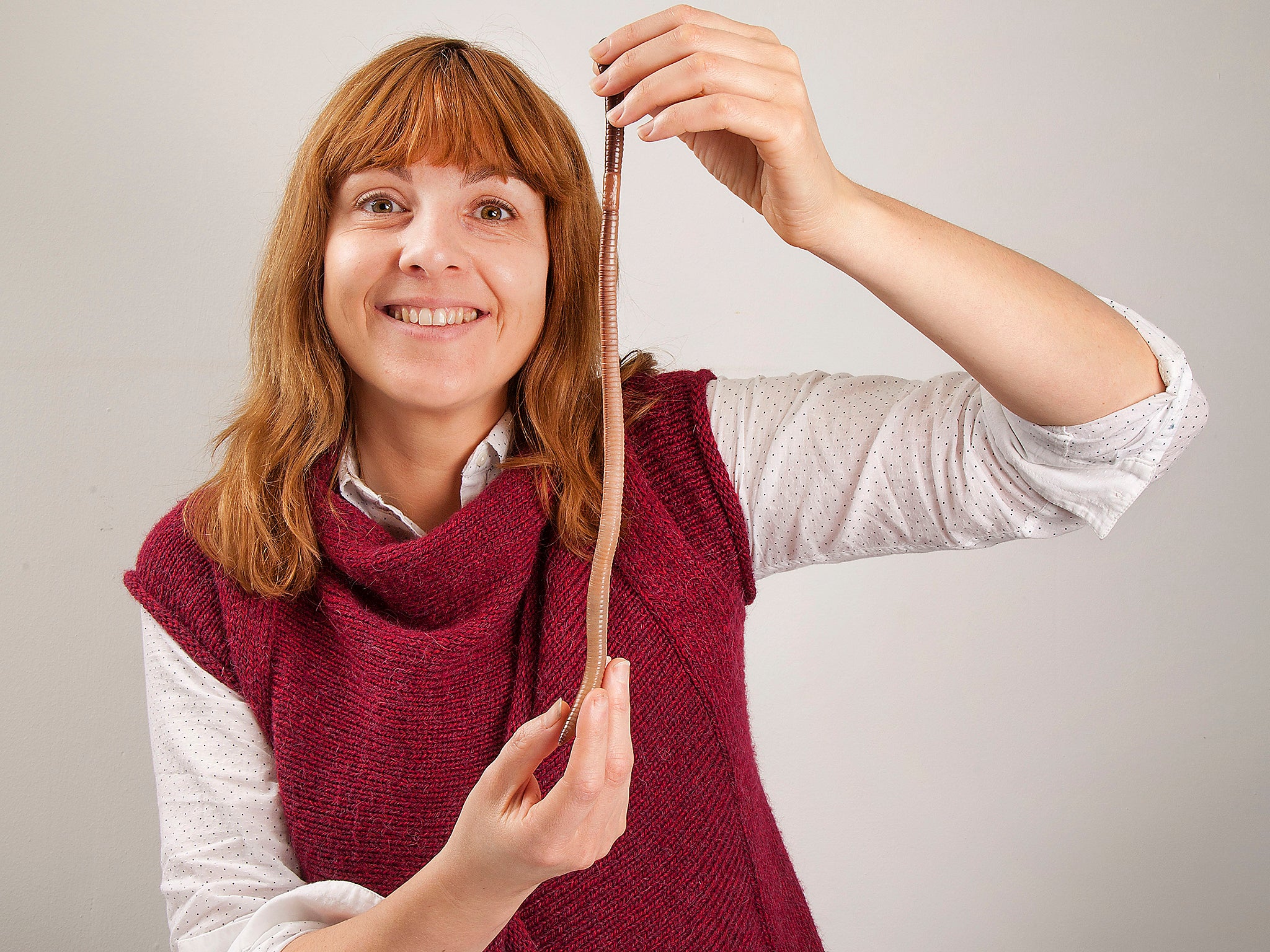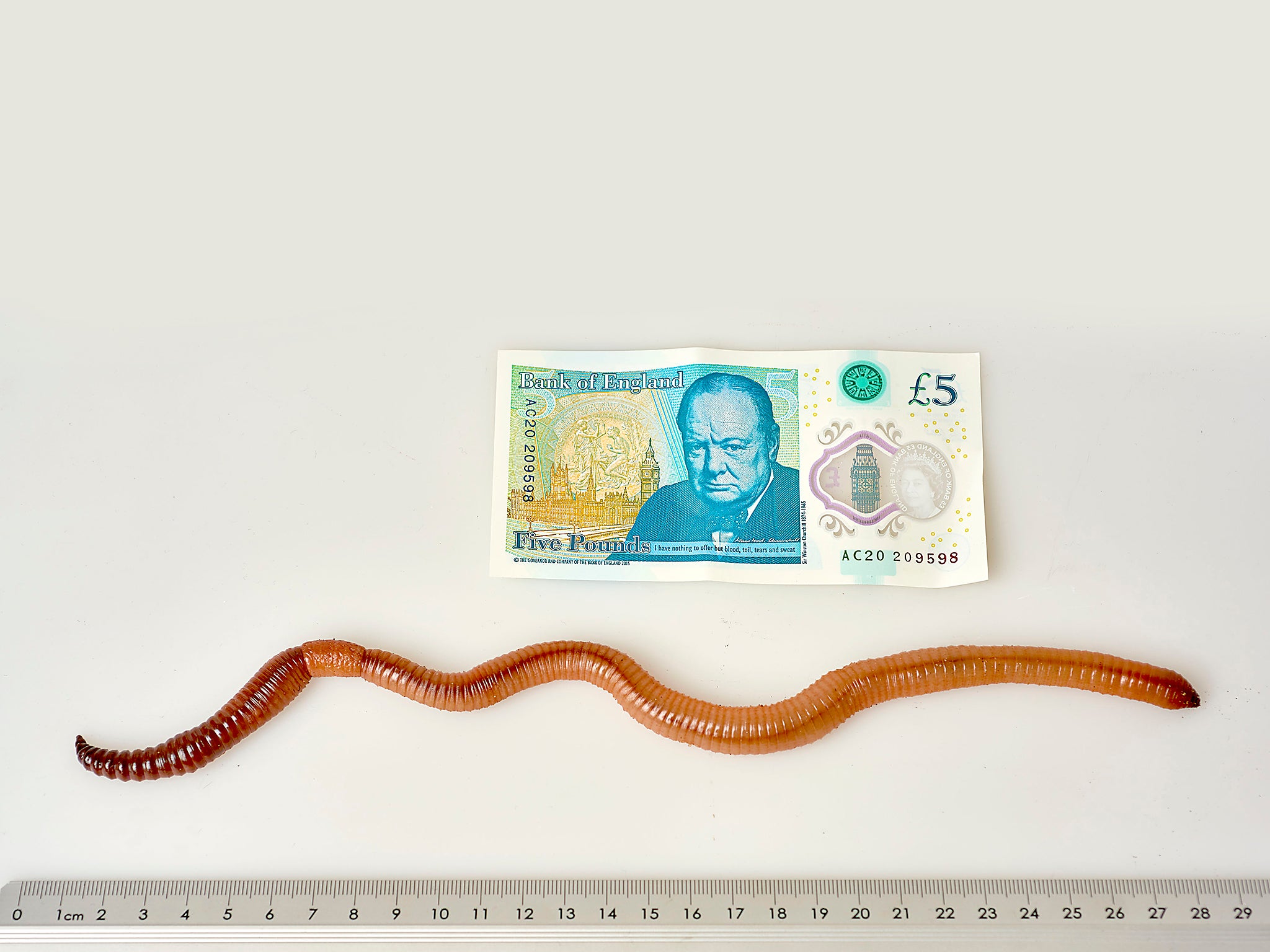Dave the earthworm found to the biggest ever in UK and then immediately killed by scientists
The annelid was 40cm long and weighed 26g – the size of a small snake

Your support helps us to tell the story
From reproductive rights to climate change to Big Tech, The Independent is on the ground when the story is developing. Whether it's investigating the financials of Elon Musk's pro-Trump PAC or producing our latest documentary, 'The A Word', which shines a light on the American women fighting for reproductive rights, we know how important it is to parse out the facts from the messaging.
At such a critical moment in US history, we need reporters on the ground. Your donation allows us to keep sending journalists to speak to both sides of the story.
The Independent is trusted by Americans across the entire political spectrum. And unlike many other quality news outlets, we choose not to lock Americans out of our reporting and analysis with paywalls. We believe quality journalism should be available to everyone, paid for by those who can afford it.
Your support makes all the difference.The biggest earthworm ever found in Britain has been discovered and then immediately killed by scientists.
Dave was the size of a small snake – 40cm long and weighing 26g. He was discovered crawling around in Cheshire and has now been killed so that he can be preserved.
The worm was found by Paul Rees from Widnes, who spotted the monster Lumbricus terrestris in his vegetable patch. It was named Dave by Mr Rees’s stepson, George.
Natural History Museum scientist Emma Sherlock, who chairs the Earthworm Society of Britain, said: "I was bowled over by the size of this worm when I opened the plastic box they sent it in. Not only is it really long, it is almost twice as heavy as any other wild earthworm ever seen, weighing the same as a small chocolate bar."
It’s still a mystery as to how the worm got to be so long.
"With worms this size Paul must have an incredibly fertile and well-drained veg plot with decaying matter quickly recycled back into the soil,” said Ms Sherlock. “Earthworms are incredibly important to keep soils healthy.
"I look forward to seeing if anyone can find an even bigger example by taking part in the Earthworm Watch survey this autumn.”
Earthworm Watch is a countrywide survey of earthworms and soil quality that is run by the Natural History Museum and other groups.
The previous record holders were earthworms found on the Scottish island of Rum. They were found last year and measured 39.6cm, but were much lighter – the heaviest was just 12.6g.

Their size is thought to have occurred because of a lack of predators and rich soil.
Join our commenting forum
Join thought-provoking conversations, follow other Independent readers and see their replies
Comments